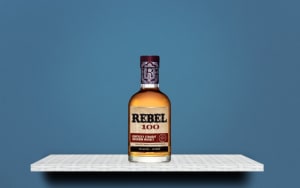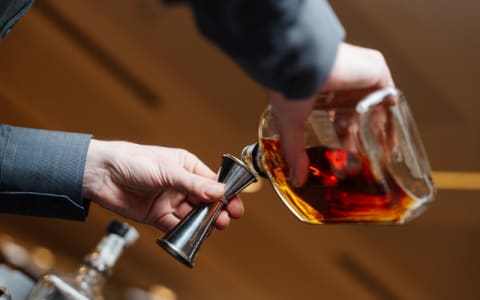The world’s largest Scotch whisky producer, Diageo, is navigating rough waters as its CEO, Debra Crew, steps down after a challenging two-year tenure. The London-based company, known for iconic brands like Johnnie Walker, Guinness, and Baileys, announced Crew’s immediate departure by mutual agreement with the board. Chief Financial Officer Nik Jhangiani will take the helm as interim CEO while the company searches for a permanent replacement. This leadership shake-up comes at a time when Diageo is grappling with declining sales, a plummeting share price, and the looming threat of new U.S. trade tariffs.
A Rocky Tenure for Debra Crew
Debra Crew, Diageo’s first female CEO, took the reins in June 2023 following the death of her predecessor, Sir Ivan Menezes. With a background as an officer in the U.S. Army and senior roles at Reynolds American and PepsiCo, Crew brought a wealth of experience to the role. However, her time at the top was marked by significant challenges. The company faced its first sales drop in four years during the 2023-24 financial year, driven largely by a weak performance in Latin America. This region, a key market for Diageo’s Scotch whisky portfolio, struggled with excess inventory and reduced consumer demand, putting pressure on the company’s bottom line.
Diageo’s share price has also taken a hit, dropping nearly 50% over the past two years. Investors have grown increasingly frustrated with the company’s performance, particularly as global consumer trends shift and economic uncertainties persist. Despite these setbacks, the market responded positively to Crew’s exit, with Diageo’s shares rising by about 4% on the day of the announcement. This uptick suggests that investors are hopeful a new leader can steer the company back to growth.
U.S. Tariffs Add to Diageo’s Woes
One of the biggest hurdles Diageo faces is the threat of new U.S. trade tariffs. The company recently warned that a proposed 10% levy on UK and European exports could cost it approximately $150 million annually. The U.S. is Diageo’s largest market, accounting for a significant portion of its sales, particularly for brands like Johnnie Walker and Crown Royal Canadian whisky. While earlier estimates suggested a $200 million hit from tariffs, Diageo revised this figure downward in May after threats of higher levies on Mexican tequila and Canadian whisky did not materialize. Still, the company expects the tariffs to dent its operating profits, adding another layer of complexity to its recovery efforts.
To mitigate the impact, Diageo has been proactive, accelerating shipments to the U.S. to stock up before the tariffs take effect. The company also believes it can offset about half of the tariff costs through pricing strategies and operational efficiencies. However, with consumer spending already strained by inflation and high interest rates, raising prices could be a risky move in a competitive market.
Cost-Cutting and Strategic Shifts
In response to its financial challenges, Diageo launched a $500 million cost-saving program in May, set to roll out over three years. This initiative aims to streamline operations, optimize the supply chain, and reduce spending on advertising and promotions. Unlike some competitors, Diageo has emphasized that large-scale layoffs are not part of the plan, though it may slow hiring to manage headcount. The company is also exploring asset sales to reduce its debt, signaling a broader effort to shore up its financial position.
Despite the sales slump, not all of Diageo’s portfolio is struggling. Guinness, the company’s iconic stout, has been a bright spot, with strong sales growth driven by both its traditional and non-alcoholic versions. In the third quarter of the 2024-25 fiscal year, Diageo reported a 5.9% rise in organic sales, largely thanks to robust demand for Guinness in North America. This success highlights the strength of Diageo’s diverse portfolio, which spans Scotch whisky, gin, vodka, tequila, and more.
The Road Ahead for Diageo
With Nik Jhangiani stepping in as interim CEO, Diageo is at a crossroads. Jhangiani, who joined the company in September as CFO, brings a strong financial background from his time at Coca-Cola Enterprises. Analysts view him as a capable leader, though some note his lack of direct experience in the spirits industry could be a challenge. The board is now focused on finding a permanent CEO who can restore investor confidence and navigate the complex global market.
Diageo’s struggles are not unique. The broader spirits industry is facing headwinds, including shifting consumer preferences toward healthier lifestyles and the growing popularity of non-alcoholic beverages. In key markets like the U.S. and China, demand for premium spirits has softened, while Latin America and the Caribbean have been hit by economic volatility. Additionally, the potential for further trade disruptions, such as Chinese tariffs on European brandy or additional U.S. levies, looms large.
Despite these challenges, Diageo remains a powerhouse in the global spirits market, producing 40% of the world’s Scotch whisky and operating 132 sites worldwide. Its portfolio includes household names like Smirnoff, Tanqueray, and Captain Morgan, giving it a strong foundation to weather the storm. The company’s leadership is optimistic about its long-term prospects, pointing to its ability to adapt to changing market conditions and its ongoing investments in premium brands and sustainability.
A Shifting Landscape for Scotch Whisky
The Scotch whisky industry, long a cornerstone of Diageo’s success, is facing its own set of challenges. While single malts like Lagavulin and Talisker have seen growth in some markets, blended whiskies such as Johnnie Walker Black Label and Red Label have struggled, particularly in Latin America. The company has also faced criticism from whisky enthusiasts over rising prices and perceived declines in quality for some of its core offerings. Posts on platforms like Reddit reflect growing frustration among consumers, with some calling for a boycott of Diageo products in favor of independent bottlers.
On a positive note, Diageo is eyeing growth opportunities in markets like India, the world’s largest whisky-consuming market by volume. The recent India-UK Free Trade Agreement is expected to slash tariffs on Scotch whisky from 150% to 75% initially, with further reductions planned over the next decade. This could lead to price drops of up to 20-22% in India, potentially boosting demand for Diageo’s premium brands like Black & White and Johnnie Walker Blonde. However, local taxes and regulatory hurdles may temper the impact, and competition from Indian-made whiskies remains fierce.
Looking to the Future
As Diageo searches for a new CEO, the company must balance short-term challenges with its long-term vision. The global spirits market remains attractive, with premiumization trends and growing demand in emerging markets offering opportunities for growth. Diageo’s ability to navigate tariffs, streamline operations, and reconnect with consumers will be critical to its success.
For now, the focus is on stability. Diageo has reaffirmed its financial forecasts for the 2025 and 2026 fiscal years, signaling confidence in its turnaround plan. With Jhangiani at the helm and a robust portfolio of brands, the company is well-positioned to regain its footing. However, the road ahead will require careful navigation of economic uncertainties, evolving consumer tastes, and the ever-present threat of trade barriers.
As the whisky giant charts its next chapter, one thing is clear: Diageo’s ability to adapt and innovate will determine whether it can reclaim its place as a leader in the global spirits industry.




